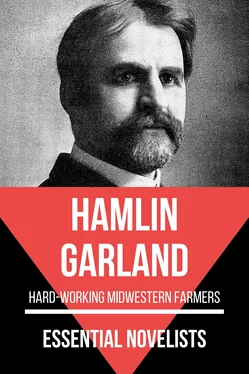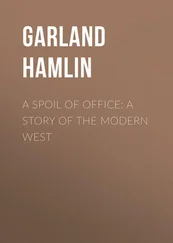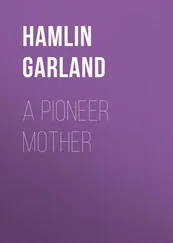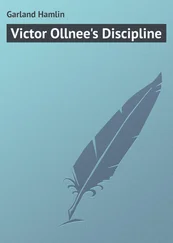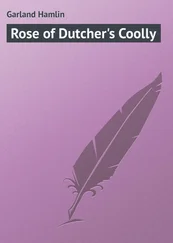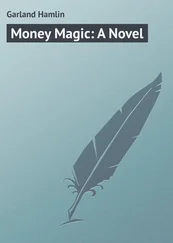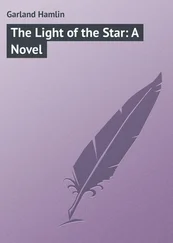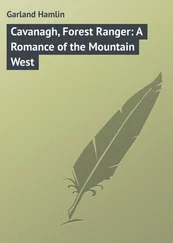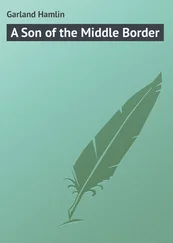1 ...6 7 8 10 11 12 ...43 But the mills and the log booms were after all much more dramatic and we never failed to hurry away to the river if we had half an hour to spare. The "drivers," so brave and skilled, so graceful, held us in breathless admiration as they leaped from one rolling log to another, or walked the narrow wooden bridges above the deep and silently sweeping waters. The piles of slabs, the mounds of sawdust, the intermittent, ferocious snarl of the saws, the slap of falling lumber, the never ending fires eating up the refuse—all these sights and sounds made a return to school difficult. Even the life around the threshing machine seemed a little tame in comparison with the life of the booms.
We were much at the Greens', our second-door neighbors to the south, and the doings of the men-folks fill large space in my memory. Ed, the oldest of the boys, a man of twenty-three or four, was as prodigious in his way as my Uncle David. He was mighty with the axe. His deeds as a railsplitter rivaled those of Lincoln. The number of cords of wood he could split in a single day was beyond belief. It was either seven or eleven, I forget which—I am perfectly certain of the number of buckwheat pancakes he could eat for I kept count on several occasions. Once he ate nine the size of a dinner plate together with a suitable number of sausages—but what would you expect of a man who could whirl a six pound axe all day in a desperate attack on the forest, without once looking at the sun or pausing for breath?
However, he fell short of my hero in other ways. He looked like a fat man and his fiddling was only middling, therefore, notwithstanding his prowess with the axe and the maul, he remained subordinate to David, and though they never came to a test of strength we were perfectly sure that David was the finer man. His supple grace and his unconquerable pride made him altogether admirable.
Den, the youngest of the Greens, was a boy about three years my senior, and a most attractive lad. I met him some years ago in California, a successful doctor, and we talked of the days when I was his slave and humbly carried his powder horn and game bag. Ellis Usher, who lived in Sand Lake and often hunted with Den, is an editor in Milwaukee and one of the political leaders of his state. In those days he had a small opinion of me. No doubt I was a nuisance.
The road which led from our farm to the village school crossed a sandy ridge and often in June our path became so hot that it burned the soles of our feet. If we went out of the road there were sand-burrs and we lost a great deal of time picking needles from our toes. How we hated those sand-burrs!—However, on these sand barrens many luscious strawberries grew. They were not large, but they gave off a delicious odor, and it sometimes took us a long time to reach home.
There was a recognized element of danger in this road. Wildcats were plentiful around the limestone cliffs, and bears had been seen under the oak trees. In fact a place on the hillside was often pointed out with awe as "the place where Al Randal killed the bear." Our way led past the village cemetery also, and there was to me something vaguely awesome in that silent bivouac of the dead.
Among the other village boys in the school were two lads named Gallagher, one of whom, whose name was Matt, became my daily terror. He was two years older than I and had all of a city gamin's cunning and self-command. At every intermission he sidled close to me, walking round me, feeling my arms, and making much of my muscle. Sometimes he came behind and lifted me to see how heavy I was, or called attention to my strong hands and wrists, insisting with the most terrifying candor of conviction, "I'm sure you can lick me." We never quite came to combat, and finally he gave up this baiting for a still more exquisite method of torment.
My sister and I possessed a dog named Rover, a meek little yellow, bow-legged cur of mongrel character, but with the frankest, gentlest and sweetest face, it seemed to us, in all the world. He was not allowed to accompany us to school and scarcely ever left the yard, but Matt Gallagher in some way discovered my deep affection for this pet and thereafter played upon my fears with a malevolence which knew no mercy. One day he said, "Me and brother Dan are going over to your place to get a calf that's in your pasture. We're going to get excused fifteen minutes early. We'll get there before you do and we'll fix that dog of yours!—There won't be nothin' left of him but a grease spot when we are done with him."
These words, spoken probably in jest, instantly filled my heart with an agony of fear. I saw in imagination just how my little playmate would come running out to meet his cruel foes, his brown eyes beaming with love and trust,—I saw them hiding sharp stones behind their backs while snapping their left-hand fingers to lure him within reach, and then I saw them drive their murdering weapons at his head.
I could think of nothing else. I could not study, I could only sit and stare out of the window with tears running down my cheeks, until at last, the teacher observing my distress, inquired, "What is the matter?" And I, not knowing how to enter upon so terrible a tale, whined out, "I'm sick, I want to go home."
"You may go," said the teacher kindly.
Snatching my cap from beneath the desk where I had concealed it at recess, I hurried out and away over the sand-lot on the shortest way home. No stopping now for burrs!—I ran like one pursued. I shall never forget as long as I live, the pain, the panic, the frenzy of that race against time. The hot sand burned my feet, my side ached, my mouth was dry, and yet I ran on and on and on, looking back from moment to moment, seeing pursuers in every moving object.
At last I came in sight of home, and Rover frisked out to meet me just as I had expected him to do, his tail wagging, his gentle eyes smiling up at me. Gasping, unable to utter a word, I frantically dragged the dog into the house and shut the door.
"What is the matter?" asked my mother.
I could not at the moment explain even to her what had threatened me, but her calm sweet words at last gave my story vent. Out it came in torrential flow.
"Why, you poor child!" she said. "They were only fooling—they wouldn't dare to hurt your dog!"
This was probably true. Matt had spoken without any clear idea of the torture he was inflicting.
It is often said, "How little is required to give a child joy," but men—and women too—sometimes forget how little it takes to give a child pain.
Father Sells the Farm
Green's Coulee was a delightful place for boys. It offered hunting and coasting and many other engrossing sports, but my father, as the seasons went by, became thoroughly dissatisfied with its disadvantages. More and more he resented the stumps and ridges which interrupted his plow. Much of his quarter-section remained unbroken. There were ditches to be dug in the marsh and young oaks to be uprooted from the forest, and he was obliged to toil with unremitting severity. There were times, of course, when field duties did not press, but never a day came when the necessity for twelve hours' labor did not exist.
Furthermore, as he grubbed or reaped he remembered the glorious prairies he had crossed on his exploring trip into Minnesota before the war, and the oftener he thought of them the more bitterly he resented his up-tilted, horse-killing fields, and his complaining words sank so deep into the minds of his sons that for years thereafter they were unable to look upon any rise of ground as an object to be admired.
It irked him beyond measure to force his reaper along a steep slope, and he loathed the irregular little patches running up the ravines behind the timbered knolls, and so at last like many another of his neighbors he began to look away to the west as a fairer field for conquest. He no more thought of going east than a liberated eagle dreams of returning to its narrow cage. He loved to talk of Boston, to boast of its splendor, but to live there, to earn his bread there, was unthinkable. Beneath the sunset lay the enchanted land of opportunity and his liberation came unexpectedly.
Читать дальше
